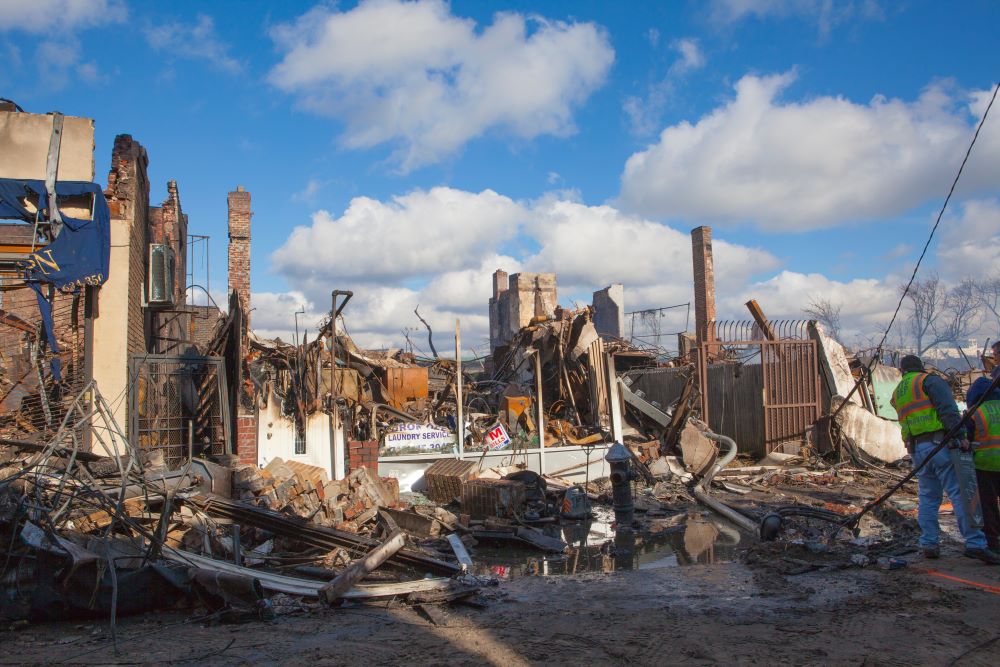
Community Impact of Commercial Demolition Companies
Even something as basic as demolishing a building may have a big impact on the neighborhood. Even though they are often associated with devastation, commercial demolition contractors play a far more important function than just using wrecking balls. In actuality, these businesses play a critical role in revitalizing communities, opening the door for new construction, and boosting the local economy.
They can guarantee public safety, reduce the negative effects on the environment, and protect priceless resources by carefully controlling the demolition process. This article explores the many ways that commercial demolition businesses affect communities, revealing the surprising ways in which they may revitalize towns, promote sustainability, and change landscapes.
OUR SERVICES
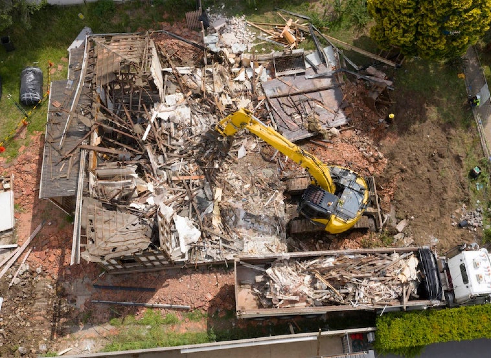
Structure Demolition. Residential, Commercial & Industrial
If your structure poses a health, safety, or environmental risk, demolition can prevent costly citations or fatal accidents. While this may seem daunting, you are just a phone call away from having your residential demolition done professionally, responsibly, and at a great price.
Talk to a Demolition Specialist Now! 916.249.5001
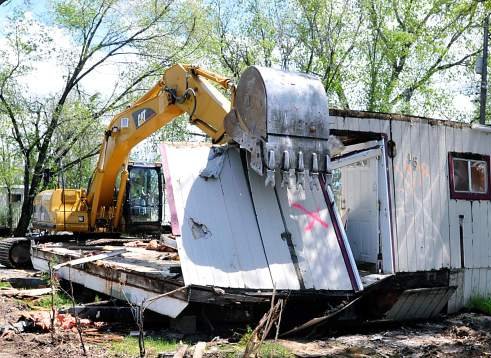
Mobile Home Demolition
We demolish and haul away mobile homes. Any size, anywhere, anyhow. We are fast, clean and competitive. We serve most of Northern California. There are many factors to consider when removing or demolishing your old trailer, mobile home, or manufactured home like: the processes involved, costs, time, contractors, debris, and permits.
Talk to a Demolition Specialist Now! 916.249.5001
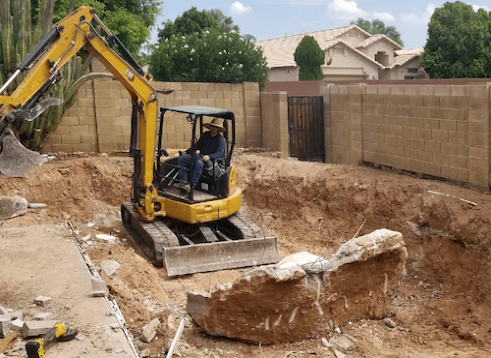
Pool Demolition
When removing a pool in Sacramento, California with the professional demolition team of Maxton Demo, you’re guaranteed peace of mind from beginning to end. From your initial request for an estimate to clean-up, you can expect our pool demolition process that’s completely professional and safe.
Talk to a Demolition Specialist Now! 916.249.5001
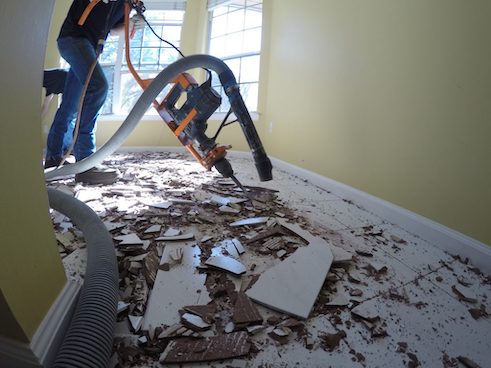
Floor Demolition
Flooring demolition, like any other major home renovation work, requires a specific set of skills and tools to be performed properly. You need experts in flooring demolition to get you the best floors possible. Contact us to find out more about how we can help you today.
Talk to a Demolition Specialist Now! 916.249.5001
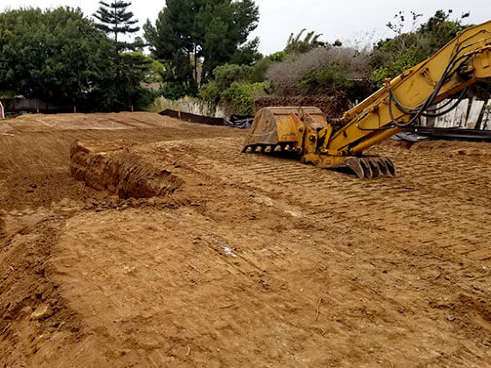
Grading & Excavating
If you need an experienced excavator and grader in Sacramento, call us today. One of the many reasons that residential, commercial, and industrial customers choose to work with us is because we’re able to provide a broad range of services to help construction-related projects get done in less time and at a reduced cost.
Talk to a Demolition Specialist Now! 916.249.5001

Roof Snow Removal
Heavy snow & ice dams can cause significant roof and home damage. Roof Snow removal is our specialty during the winter months. Serving the Sacramento, California area for 10 years, we can get your roof snow removed and promise a quick response and reasonable rates.
Talk to a Demolition Specialist Now! 916.249.5001
Local Communities’ Economic Impact
An area’s revitalization frequently begins with the destruction of old commercial buildings to make room for new investments. Such initiatives have the potential to greatly strengthen the local economy. Communities are given new life via the process of demolishing and rebuilding, which may boost property prices and draw in new enterprises.
Additionally, by generating more money for local governments to reinvest in the community via taxes and fees related to building and development, these projects may also result in higher municipal revenues. Communities need this cycle of creation and deconstruction to be dynamic and economically sound.
Sustainability and Environmental Aspects
As demolition businesses become more conscious of their environmental responsibilities, they are embracing more sustainable procedures. These companies are leading the way in making sure that demolition projects are in line with more general environmental objectives, from recycling materials to reducing the emission of hazardous compounds.
These methods lessen the carbon footprint of building projects while also assisting in the conservation of natural resources. Demolition businesses contribute to making new projects more environmentally friendly and climate change adaptable by putting sustainability first.
Creation of Jobs and Employment Possibilities
Commercial demolition is a labor-intensive process that calls for a variety of trained individuals, including safety inspectors, engineers, and demolition specialists. These initiatives may result in a large number of job openings for the local population, fostering stability and expansion of the local economy.
Furthermore, the many demolition businesses provide training programs and apprenticeships that contribute to the development of the local workforce by providing people with essential skills that are sought after in the current labor market. The society as a whole gains from this as much as the individuals, since unemployment and underemployment rates have decreased.
Development of Infrastructure and Urban Renewal
In urban renewal projects, demolition companies are essential because they provide room for new infrastructure that adapts to the changing demands of the community. These projects, which may include public facilities, retail establishments, or new homes, may greatly raise the standard of living for locals.
Demolition businesses play a crucial role in determining how urban landscapes will develop in the future by taking down outdated buildings to make way for more contemporary, energy-efficient facilities. If cities want to remain competitive and appealing to companies as well as inhabitants, they must engage in this process of growth and regeneration.
Rules for Health and Safety in Demolition Projects
In the demolition sector, compliance with stringent health and safety laws is essential. These businesses have an obligation to protect the community’s safety in addition to the safety of their employees by putting strict safety procedures in place and using cutting-edge technology to avert mishaps.
Moreover, demolition businesses may avoid any health hazards connected to their work by handling dust and dangerous materials correctly. In addition to safeguarding people, this dedication to health and safety highlights the industry’s duty to the general welfare.
Participation of the Community and Public Views
Demolition projects sometimes fail because of poor community participation and communication. Demolition businesses may foster trust and anticipate issues by including locals and stakeholders in the planning phase. By working together, we may shift the public’s view of demolition from one of an inevitable evil to one of an essential part of the development and progress of communities.
Difficulties Commercial Demolition Companies Face
Demolition companies have a lot of obstacles to overcome, even with their potential for good. These include figuring out complicated legislation and handling public objections. Comprehending these obstacles is crucial to recognizing the fine equilibrium these businesses need to maintain between advancement and the welfare of the neighborhood.
Progress And Community Well-Being Are Balanced
Commercial demolition businesses have a large and diverse influence on communities, despite the fact that their main job may be to demolish buildings. These businesses have a significant impact on how our communities develop because they promote economic development, embrace sustainability, create employment, and aid in urban revitalization.
Thorough planning, honest communication, a dedication to environmental stewardship and public safety, and a commitment to progress are all necessary to strike a balance between community needs and advancement expectations. Commercial demolition businesses will surely continue to play a more evolving role in community development as time goes on, reflecting shifting societal values and objectives.
Activating Communities: A Handbook from Demolition Companies
For demolition companies that want to be the best in their industry and build good connections with the communities they serve, community participation is essential. These businesses must realize that every initiative they undertake has the potential to have a big influence on the local economy, ecology, and social fabric. Building cooperation, understanding, and trust with the community is the goal of community engagement, going beyond just adhering to legal obligations.
Building Futures, Bridging Gaps: At its foundation, community involvement aims to close the distance between advancement and preservation. The beauty and livability of a town may be improved by new developments that are often made possible by demolition operations. But in the absence of appropriate participation, these initiatives run the run the risk inciting hostility and disenfranchisement. Demolition companies may allay community worries and convert possible enemies into friends by actively including the community in the planning process.
The Social and Economic Ripple Effects: Good community involvement has advantages far beyond the local area around a demolition site. They have a cascading effect, encouraging a feeling of pride and ownership among neighbors. People may therefore feel more involved in the changes taking place in their community, and local economies may grow as a result. Prioritizing community involvement by demolition businesses helps to improve social ties as well as the physical alteration of areas.
Comprehending Community Needs and Concerns: Listening is the first step in comprehending community needs and concerns. When it comes to community participation, demolition contractors need to be prepared to listen to the locals and have an open mind. This calls for active participation as well as passive listening, such as making inquiries, locating local leaders, and showing up to meetings. Businesses may better customize their efforts to fit the demands of a community by having a thorough awareness of its unique issues and objectives.
Finding the important players
There are many different stakeholders in any community, and they all have different viewpoints and goals. These might include homeowners, local company owners, historical societies, and environmental organizations. Understanding the larger context of a project and the many circumstances that might affect its reception requires identifying these stakeholders early in the planning phase.
Proactively handling problems: It’s critical that demolition businesses take aggressive measures to resolve problems as soon as they are discovered. This might be making modifications to project plans to protect historically significant elements, putting precautions in place to lessen the effect on the environment, or offering assistance to nearby companies that could be impacted by the demolition process. Companies may gain support and lessen resistance by showing that they are committed to resolving complaints and treating them with respect.
Crafting a Successful Community Engagement Strategy: A successful community engagement strategy starts with well-defined goals and objectives. What does the business want to accomplish by promoting engagement? This might include goals like increasing project support, resolving community issues, or cultivating enduring connections. Establishing specific objectives helps to guarantee that efforts are concentrated and productive while also providing a structure for the engagement process.
Selecting the Best Tools and Channels: There are a variety of tools and channels available for community interaction, including social media, online forums, public meetings, and workshops. Selecting the media outlets that have the best chance of reaching and engaging the intended audience is crucial. This might include a blend of conventional and digital techniques, according to the community’s unique interests and demographics.
Creating a timetable and milestones: Maintaining the community involvement process on schedule requires a well-organized timetable. Important checkpoints like open forums, comment periods, and project updates should be included. A well-defined schedule aids in expectation management and shows the organization’s dedication to an open, inclusive procedure.
Techniques of Communication in Demolition Projects
Creating Messages That Are Clear and Transparent: Successful community participation is largely dependent on effective communication. This entails creating communications that are understandable, open, and available to everyone in the community. Instead of using technical jargon, demolition businesses should concentrate on giving information that is clear and relevant to the needs of the audience.
Proactive communication is just as vital as reactive communication, yet reactive communication is required to solve some issues and queries. Companies may exhibit openness and foster trust by providing information about a project’s status, advantages, and effects prior to being asked. The community is kept informed and involved via regular updates, which might be provided through newsletters, social media, or community meetings.
Establishing a Two-Way Conversation: Lastly, listening and reacting are as important components of good communication as information dissemination. Encouragement of feedback and the provision of avenues for two-way communication demonstrate the company’s appreciation of community input and its willingness to make adjustments in response to it. Open forums, feedback forms, and Q&A sessions may all help with this.
Resources and Innovations to Strengthen Community Involvement
Digital platforms provide effective tools for interacting with communities in today’s linked society. Real-time communication and wide dissemination may be facilitated via social media, project websites, and online forums. These platforms allow for more engaging and approachable community engagement via the sharing of updates and comments.
Data and Analytics for Understanding Community Needs: Improving community participation is another area in which data and analytics may be very important. Through the examination of community demographics, problems, and interests, businesses may get valuable information about customizing their engagement tactics. This might be utilizing feedback data to gauge the success of engagement initiatives or segmenting the audience to provide content that is more specifically focused.
Virtual Reality and Visualization Tools: New technologies provide fresh approaches to including communities in the planning stages of demolition projects, such as virtual reality (VR) and visualization tools. These technologies may help community members better grasp the advantages and consequences of proposed projects by offering immersive visuals, which can lead to more informed and productive discussions. VR may also be used to simulate the results of various planning scenarios, enabling a more collaborative method of decision-making.
Ethical and Legal Aspects of Community Involvement
The process of community participation is often heavily influenced by legal and regulatory obligations. It is essential for demolition businesses to guarantee that their involvement endeavors conform to all pertinent legal statutes and regulations, including standards for public notice, environmental impact assessments, and demands for public consultation. To create an engagement strategy that is both successful and compliant with the law, one must have a thorough understanding of these legal frameworks.
Ethical Issues in Participating in the Community
All facets of community interaction should be guided by ethical concerns, regardless of legal restrictions. This entails treating community members with decency and respect, making sure that the engagement process is inclusive and accessible, and being open and truthful about any possible negative effects of a project. The foundation for fostering trust and goodwill in society is ethical involvement, which is about doing what is right rather than merely what is necessary.
Juggling Business Goals With Social Issues
Balancing the demolition company’s interests with the community’s worries and aspirations is one of the difficulties in engaging the community. Even though it may not always be feasible to satisfy everyone, businesses should make an effort to identify points of agreement and look for win-win solutions. This often calls for imagination, adaptability, and a readiness to give in order to achieve a common future goal.
Assessing the Results of Community Involvement Initiatives
Setting Success Metrics: Determining the impact of community engagement initiatives is essential to comprehending their efficacy and pinpointing areas in need of development. This entails defining precise success criteria, which may include markers like the degree of community support for a project, the quantity of community members involved, or the caliber of input obtained. Businesses may evaluate the effectiveness of their engagement tactics and make data-driven choices to improve their efforts by monitoring these measures over time.
Collecting and Examining Community Input: Community input provides a wealth of information on how well engagement initiatives are working. It is recommended that demolition companies set up systems for obtaining input from the community, such as questionnaires, comment forms, or community meetings. By examining this input, businesses may identify patterns and trends that will guide their future engagement tactics and make their approach even better.
Lastly, assessing the success of community involvement initiatives should be a continual process that involves regularly revising engagement techniques in response to input and results. Flexibility and a willingness to try new things are essential, since what works for one project or community may not work for another. Demolition businesses may improve their engagement strategies over time by listening to community members’ wants and concerns. This will help them forge deeper bonds with the community and provide better results for all parties involved.
Developing Positive Connections and Trust via Community Involvement
Establishing a Foundation for Future Success: Successful community involvement aims to build enduring partnerships between demolition businesses and the communities they serve, not merely to accomplish the short-term objectives of a project. Businesses may increase trust, lessen resistance, and improve the social and economic well-being of communities by engaging in community involvement. As a result, the atmosphere for future projects is improved, and the company’s standing as a responsive and accountable leader in the sector is strengthened.
A dedication to continuous improvement: new tools, technologies, and approaches are constantly being developed in the area of community involvement. The best-positioned demolition businesses to successfully negotiate the complexities of community relations and achieve long-term success are those who are dedicated to the ongoing enhancement of their engagement initiatives. This calls for a sincere dedication to the principles of openness, inclusion, and teamwork, as well as a proactive attitude toward learning and innovation.
A Legacy of Good Influence: Demolition companies that are exceptional in their community involvement eventually produce a legacy of good influence that extends beyond the actual alteration of landscapes. They aid in boosting local economies, building stronger communities, and cultivating a sense of civic pride. Demolition projects have the capacity to become positive change agents through proper involvement, demonstrating the real potential of business and community cooperation.
Prospects for the Future
The significance of community participation will only increase as the demolition business develops. The methods and techniques described in this handbook provide a means of fostering enduring connections with communities in addition to serving as a means of reducing conflict. Demolition companies may create more effective and welcomed projects by putting an emphasis on open communication, empathy, and teamwork. This can even transform potential enemies into friends.
Engaging communities is ultimately about more than simply sound business practices; it’s about promoting a cooperative spirit, strengthening the social fabric of the communities in which we live and work, and leaving a lasting legacy of positive influence. Let’s keep using these strategies as we go forward to make sure that every demolition job creates a better, more cohesive community as well as a cleared site.
Do you have a Question?
Talk to a Demolition Specialist Now! 916.249.5001
Request Formal Quote